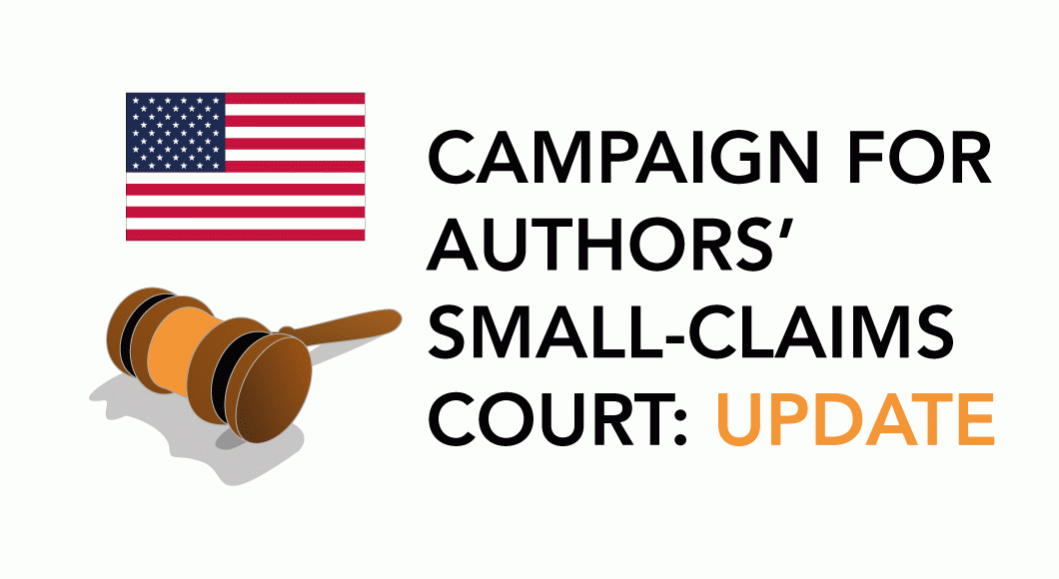Cheryl Davis, General Counsel at the Authors Guild in New York, recently gave an update on the current state of the Copyright Alternative in Small-Claims Enforcement (CASE) Act.
The Guild has long insisted on the need for a copyright small claims tribunal, and on 18 July 2019, the Senate Judiciary Committee agreed, passing S. 1273, the Copyright Alternative in Small-Claims Enforcement Act of 2019 (CASE Act) with no opposition. This legislation, if passed by the entire Congress (and signed by the President), will provide US creators with a viable means for defending their copyrighted works. The bill was co-sponsored in the Senate by John Kennedy (R-LA), Thom Tillis (R-NC), Dick Durbin (D-IL) and Mazie Hirono (D-HI). The original co-sponsors for H.R. 2426 (the House version of the bill) include Rep. Hakeem Jeffries (D-NY), House Judiciary Chair Jerry Nadler (D-NY) and Subcommittee Chair Hank Johnson (D-GA), as well as Martha Roby (R-AL), Judy Chu (D-CA), Ben Cline (R-VA), Ted Lieu (D-CA) and Brian Fitzpatrick (R-PA). As of 30 September 2019, the bill had 108 co-sponsors in the House and 15 in the Senate.
The CASE Act would provide copyright owners with an alternative to the expensive process of bringing copyright claims in federal court. This small-claims tribunal, which would be located within the Copyright Office, would allow plaintiffs to recover up to $15,000 in statutory damages per work infringed, with a $30,000 cap in total damages per case. The process would be entirely optional for both parties, and although defendants could opt out, we hope that the cap on damages and the lower legal fees would give defendants a reason to participate, if only to discuss acceptable settlement/licensing terms. The parties would not need to hire attorneys, and all proceedings would be conducted remotely, significantly reducing the cost.
The legislation is fair, balanced and – importantly – passable. Interested parties have been working on the bill for several years, and any complaints made by the Electronic Frontier Foundation[1] and other similar groups have already been addressed in the current version of the bill. The bill discourages bad-faith claims by imposing fees on bad actors and barring chronic offenders from initiating new claims for a period of time. It also ensures fairness by stipulating that the three ‘judges’ (actually Copyright Claims Officers) be appointed and removable by the Librarian of Congress, and by requiring that two of the three have experience representing a diversity of copyright interests. The Copyright Office has itself expressed support for the current version of the bill.
With the many threats authors face today – in particular the proliferation of large-scale digital piracy – a small claims court is more necessary than ever before. Federal court litigation is unaffordable to most authors and other creators because the cost of litigation vastly outstrips the value of most copyright claims. As a result, most creators have been left with unenforceable rights. With the help of Congress and the thousands of small creators out there fighting and lobbying for this bill, we hope that this is about to change.
“A right without a remedy is no right at all,” says Authors Guild Executive Director Mary Rasenberger. “On an individual level, the inability to enforce one’s rights undermines the economic incentive to create new works. On a collective level, it corrodes respect for the rule of law and deprives society of the benefits of creativity.”
[1] The Electronic Frontier Foundation (commonly referred to as “EFF”) describes itself as “the leading nonprofit organization defending civil liberties in the digital world.” The organization advocates for “protecting access to developing technology”, which often means arguing against enforcing copyright protections on the internet.
Cheryl Davis is the General Counsel at the Authors Guild, the USA’s oldest and largest professional organization of writers. Since their founding, they have served as the collective voice of American authors, and have long supported the rich and diverse literary culture of the USA.


